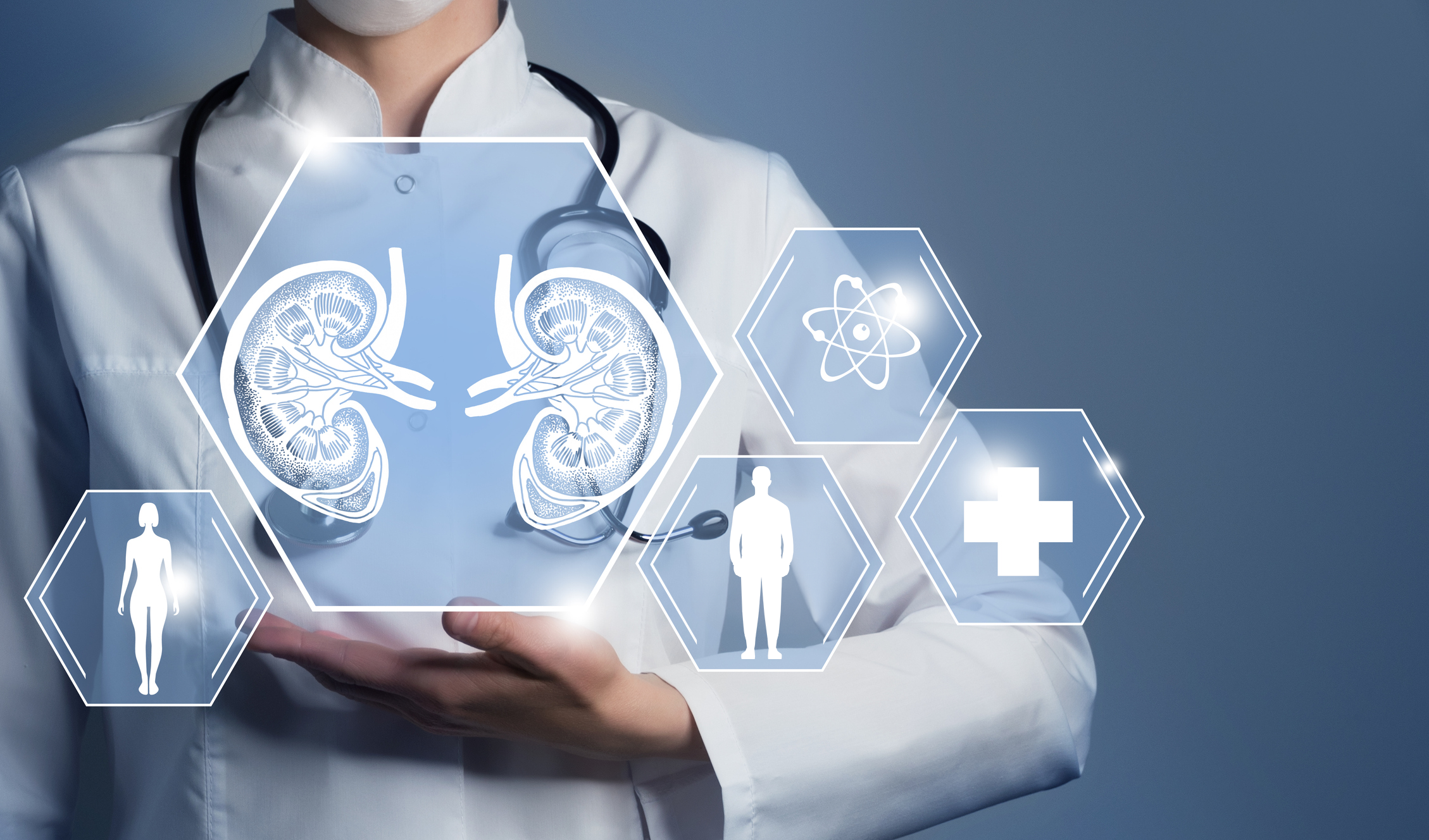
Areas of application / Kidney & bladder
Kidney & bladder
The renal and urological system is a complex network that plays a central role in maintaining homeostasis in the human body.
In this system, the kidneys are the key organs mainly responsible for the filtration of blood.
The kidneys eliminate waste products, excess electrolytes and water, while producing important substances such as erythropoietin and renin, which regulate blood formation and blood pressure.
Urine formation begins in the glomeruli, the fine capillaries of the kidneys in which the blood is filtered, and continues in the renal tubules, where the primary urine is modified.
The modified urine then travels via the ureters to the urinary bladder, a muscular hollow organ in the pelvic region that has the ability to store urine.

The urinary bladder is controlled by the internal and external urinary sphincter, which allows urine to be held in the bladder until it is excreted.
Disorders in the renal and urological system can lead to kidney disease, urinary tract infections, urinary stones and bladder problems.
Adaptation at the cellular level could help to promote homeostasis in this complex system and strengthen the health of the renal and urological systems.
Diseases and symptoms
-
Urinary tract infections: These include inflammation of the bladder (cystitis) and inflammation of the renal pelvis (pyelonephritis).
These infections can be painful and affect the normal function of the urinary system.
A lower urinary tract infection affects the urethra and bladder, while an upper urinary tract infection affects the renal pelvis and ureters. -
Acute and chronic renal insufficiency: functional failure of the kidneys and cessation of urine excretion.
Chronic renal insufficiency leads to a progressive reduction in the performance of the kidneys.
The kidneys lose their ability to excrete metabolic waste products that have to be excreted in the urine, which ultimately leads to the need for dialysis. -
Glomerulonephritis: This is an inflammation of the kidneys with primary damage to the glomeruli, the filter units of the kidneys.
This leads to kidney dysfunction with edema and reddish-brown urine. -
Bladder problems: These include bladder incontinence, neurogenic bladder disorders and interstitial cystitis, which causes pain in the bladder.
-
Renal hypertension: High blood pressure can impair kidney function and, conversely, kidney disease can cause high blood pressure.
-
Diabetic nephropathy: A long-term complication of diabetes in which the kidneys are damaged.
Care and maintenance of health
-
Adequate fluid intake: Drink enough water to support kidney function and prevent the formation of kidney stones.
-
Healthy diet: A balanced diet with plenty of fruit, vegetables, lean protein and fiber promotes kidney and bladder health.
-
Blood pressure control: Keep your blood pressure in the normal range, as high blood pressure can damage the kidneys.
-
Blood sugar control: If you have diabetes, good blood sugar control is crucial to prevent kidney damage.
-
Hygienic practices: Maintain good personal hygiene to avoid urinary tract infections.
The following content is only visible to specialists. Register now.


